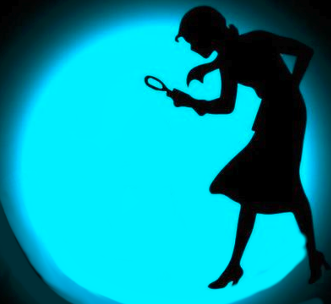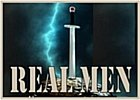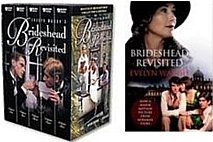 We’re all bibliolatrous when it comes to books—otherwise, you wouldn’t be reading this. The question is, how do you love your books—not how much, but in what manner do you love them? For Valentine’s Day, I think it appropriate for us to consider the ways.
We’re all bibliolatrous when it comes to books—otherwise, you wouldn’t be reading this. The question is, how do you love your books—not how much, but in what manner do you love them? For Valentine’s Day, I think it appropriate for us to consider the ways.
You're a Courtly Lover if you . . .
♥ Can't bear the thought of using an e-reader (a Kindle)
♥ Use bookmarks; never leave an open book face down
♥ Never write on or dog-ear the pages
♥ Hate having to part with old books, even ones you dislike
♥ Always remove the dust jacket while reading
♥ Never read while eating
♥ Never read in the tub or at the beach (especially with a
hardcover)
♥ Adore the smell and sound of opening a brand new book.
For you ”a book’s physical self is sacrosanct . . . its form inseparable from its content.” Your duty as a Platonic lover “is a noble but doomed attempt to conserve forever the state of perfect chastity in which the book left the bookseller.”
You're a Carnal Lover if you . . .
♥ Love using an e-reader (a Kindle)
♥ Leave the book splayed—even knowing it damages the spine
♥ Write, circle underline, or dog-ear the pages
♥ Pass on old books with eagerness
♥ Use the dust jacket’s flap as a bookmark
♥ Love to read while you eat, bathe, or go to the beach
♥ Use books for doorjams, paperweights, drink coasters, or
shims
♥ Love used books because others have enjoyed what you’re
enjoying
For you ”a book’s words are holy, but the paper, cloth, cardboard, glue, thread, and ink that contain them are merely vessels.” You feel no remorse in treating them wantonly because “hard use is a not a sign of disrespect but of intimacy.”
Here are the two extremes. Thanks to Anne Fadiman’s delightful book, Confessions of a Common Reader, for these two distinctions. Fadiman talks about her father, who when traveling would rip out pages he’d already read and toss them into the trash—it lightened his load—obviously a carnal lover. At the other end of the spectrum is a friend of hers who buys two books, one to read . . . and the other to preserve in its pristine state on the bookshelf—courtly to the max.
A fun book club discussion: which type of lover are you?
 Too young to die. John Updike was only 76 and, many suspect, still taking copious notes as he drew his last breath in hospice care in Massachusetts on January 27.
Too young to die. John Updike was only 76 and, many suspect, still taking copious notes as he drew his last breath in hospice care in Massachusetts on January 27.
His lifelong output was astonishing, not just in number but genre: novels, short stories, verse, essays, and criticism. On subject matter, he was equally wide-ranging, moving from literature and art to favorite subjects like golf and baseball.
Considered America’s preeminent recorder of the middle class, he gave “the mundane its beautiful hue,” as he himself put it. Some critics believe his sentences—lyrical things of beauty in themselves—lack the heft to carry ideas, but others feel his writing is a polished reflection of the world.
Critics find themselves hardpressed to pinpoint a single masterpiece, but most mention the Rabbit Tetrology (from 1960-90)—Rabbit, Run; Rabbit Redux; Rabbit is Rich; Rabbit at Rest—chronicling the life of fictional Harry Angstrong.
Other favorites include Couples, The Coup, The Witches of Eastwick and, recently, the Widows of Eastwick. But that short list doesn’t begin to cover the body of his work. My advice—get hold of an obituary in a major newspaper or national news magazine, where his oeuvre will be covered in depth.
- It would be fun to read Witches…then Widows of Eastwick. You might attempt the Rabbit Tetrology, too, though it’s not my favorite.
- For fun, read Updike's famous short story “A & P” in our free LitCourse 4. The story is a brilliant and funny, even bittersweet, coming of age story set in the 1950s. Also, take a look at the LitCourse Study Guide for for the story.
 What book changed your life?
What book changed your life?
Paranoid me, but I always see that question as a trap. It means you’re about to be judged on your literary taste, so you’d better come up with an OBSCURE BUT SIGNIFICANT work of literature—like a poem by Rilke.
But all I ever come up with is Nancy Drew.
Nancy. She had great clothes. She had a blue roadster ... great pals ... a boyfriend ... a doting father ... and a surrogate mother in Hannah-the-housekeeper.
Best of all, she had an unlimited supply of pocket change—which allowed her FREEDOM and ADVENTURE!! She was 18—I was 10 or 11, and I adored her ... envied her.
But Nancy Drew DID change my life. Obviously, I never become a detective—instead, I became a life-long reader. After devouring every book in the series by 13, my friend Mary Phelan Turner got me to read all 1,000+ pages of Gone With the Wind.
That did it: from there on, I was hooked on books. Books were, and still are, my drug of choice.
Something fun for a book club meeting:
- Start your meeting by having each member answer the question: “What book turned you into a life-long reader ... and why?
- Turn it into a game. All members write their answers down on a piece of paper, collect and read them outloud, then guess who submitted which title. (For more book club games under "Run a Book Club".)
 Do book clubs ruin that mysterious quality inherent in the act of reading—being transported to another world?
Do book clubs ruin that mysterious quality inherent in the act of reading—being transported to another world?
A New York Times writer says she envies her 11-year-old daughter’s ability to melt into whatever story she’s reading. The author, an analytical reader, says she longs for her girlhood when she could completely lose herself in the magic of a book.
I am not sure when or exactly how I started merely reading books instead of living in them…. But I suppose…the byproduct of growing up is that I formed too many opinions of my own to be able to give in wholeheartedly to the prospect of living inside someone else’s universe.
—”I Wish I Could Read Like a Girl,” Michelle Slatalla, New York Times, 1/1/09
By “merely reading,” I think Slatalla means reading with critical awareness rather than pure enchantment. But for me reading and thinking are synonomous. Opinions, life experiences, and achieved wisdom end up enriching the reading experience.
That may not be true for everyone. And then again, there are plenty of times I like to “just read” without doing the heavy lifting.
Questions for Book Clubs
- Does belonging to a book club require you to read with a more analytical, perhaps even skeptical, eye? If so, does that detract from your reading pleasure?
- Have you ever come away from a book club meeting thinking differently about a book because of the discussion?
- Do you end up reading on your own . . . just for fun?
 Hello…ello…lo…….. Are book clubs like echo chambers—reading and talking about the same books? Joshua Henkin (Matrimony) worries that we are: you know, books like Water for Elephants; Eat, Pray, Love; Kite Runner. We’re all reading them and reviewing the same ones.
Hello…ello…lo…….. Are book clubs like echo chambers—reading and talking about the same books? Joshua Henkin (Matrimony) worries that we are: you know, books like Water for Elephants; Eat, Pray, Love; Kite Runner. We’re all reading them and reviewing the same ones.
Here’s how Henkin puts it:
There are a lot of great books out there that people don’t know about . . . . [At the same time] fewer books have more and more readers. . . . For that reason, it has become harder for all but a handful of books to get the attention they deserve.
—Books on the Brain, 4/29/08
Henkin makes a strong case. Pity new authors trying to get their books noticed. It’s got to be disheartening.
Nonetheless, there’s something delightful that so many of us are on the same page. The book club movement is like the city that promotes a single book for its residents to read. Meet someone at the water cooler, at the mall, on the bus…and a conversation gets started. “Hey, how do you like Eat, Pray, Love? Have you read such & such yet?” It’s suddenly easy to find commonality, even with total strangers.
And while Henkin is right—many more authors deserve our attention—perhaps book club lists have more variety than expected.
Take a look at the list below. It’s a sampling of titles that have cropped up recently on LitLovers website—some are mentioned by our featured book clubs, others come from people who email me to request a reader’s guide. It’s an interesting list.
Chimimanda Ngozi Adichie — Half of a Yellow Sun
Murray Bail — Eucalyptus
Lynne Cox — Grayson
Ivan Doig — Whistling Season; the McCaskill trilogy
Jennifer Cody Epstein — The Painter from Shanghai
Dorothea Benton Frank — Sullivan’s Island
Victor Fankl — Man’s Search for Meaning
Tana French — In the Woods
Beth Gutcheon — Good-bye and Amen; Leeway Cottage
Jim Harrison — Returning to Earth
Kent Haruf — Plainsong; Eventide
Robert Hicks — Widow of the South
Paulette Jiles — Enemy Women
Lesley Kagen — Whistling in the Dark
Aryn Kyle — The God of Animals
Sinclair Lewis — Main Street
J. Nozipo Maraire – Zenzele: Letter for My Daughter
Roland Merullo — Breakfast with Buddha
David Mitchell — Ghostwritten
John O’Hara — Appointment in Samarra
Tom Perotta — Little Children; The Abstinence Teacher
Nancy Pickard — The Virgin of Small Plains
Anthony Powell — Dance to the Music of Time
Richard Powers — The Echo Maker
Reynolds Price — Kate Vaiden
Tatiana de Rosnay — Sarah’s Key
Mary Doria Russell — The Sparrow
Helen Santmyer — And Ladies of the Club
Carol Shields — Stone Diaries; Unless
Ahdaf Soueif — The Map of Love
Nancy Turner — These Is My Words
Larry Watson — Sundown, Yellow Moon; Montana 1948
See all posts on Joshua Henkin’s book club essay.
 Let me tell you how easy it is to get over your attachment to books—the kind with paper pages? Once you hold this gorgeous book-machine (yes, machine) in your hand, you won’t want to let go. Ever.
Let me tell you how easy it is to get over your attachment to books—the kind with paper pages? Once you hold this gorgeous book-machine (yes, machine) in your hand, you won’t want to let go. Ever.
It’s surprisingly easy on the eye—so you can read for hours, even even bump up the type size. It’s easy to flip from page to page and back again. You can bookmark pages, highlight passages, even make notes! You’re automatically connected to Amazon, so with a click of a button, you buy your books—and they’re downloaded within a minute. Ooooooooh… I’m in love!
But dear librarians, here’s the question: what will you do? If our books become electronic, what’s the future for libraries? I know librarians all over the country are asking this very question—I read your blogs. (Wow, do you guys blog!) And what will become of bricks-and-mortar book stores?
Oh, how did I get my Kindle? After all, they’re not cheap. Well, my dear friend Lynne presented it to me as a gift! Give her a call. Maybe she’ll take a liking to you and get you one, too. Here’s her number: 202-555-1234. Good luck.
 Cheap shot, that title. I suspect there are a healthy number of men who do join book clubs — in fact I read about one just recently.
Cheap shot, that title. I suspect there are a healthy number of men who do join book clubs — in fact I read about one just recently.
The Second Monday Men’s Book Group in Melbourne, Florida, is featured in the Nov-Dec ’08 issue of Bookmarks magazine. Funny story—before they formed their group, they thought they’d see if they could join one of their wives’ book clubs. Here’s what happened:
We brought it up. They shot it down. We’d change their dynamics by merely being present—and what would happen if we opened our mouths?
Which brings to mind the joke: If a man is alone in the forest and he speaks ... is he still wrong? Apparently so. Anyway, the guys decided to form their own club, now numbering around 7.
In an earlier post, I wondered what kind of books men read. Well here’s how the Second Monday group weighs in:
Nonfiction
Tuxedo Park (radar) | Cadillac Desert (dam-building) | Soul of a New Machine (computers) | Jungle (meat packing) | Washington’s Crossing (history) | American Theocracy (politics) | Surely You’re Joking, Mr. Feynman (physicist’s memoir) | Everglades, River of Grass (history) | West With the Night (female aviator’s memoir) | Why Americans Hate Politics (politics).
FictionAmsterdam by Ian McEwan | Saturday by McEwan | Master and Commander by Patrick O’Brien | My Antonia by Willa Cather | Foundation by Isaac Asimov (sci-fi) | Maltese Falcom by Dashiell Hammett | Big Sleep by Raymond Chandler | Yiddish Policemen’s Union by Michael Chabon | Suite Francaise by Irene Nemirovsky | The Kite Runner by Khaled Hosseini.
Observations?
- Heavy on non-fiction—50%.
- Preponderance of male writers—80%.
- Similar novel choices to female clubs—along with sci-fi (Asimov) and action-adventure /historical fiction (O'Brien).
Question: Is this a typical list for men’s book clubs—with 50% of the books nonfiction and 80% of the writers male?
Also, see So…Where Are the Guys? — an earlier post about men and book clubs.

Question: Can you really say you’ve “read” a book when you’ve listened to it? Does listenting count as “reading”—and does it work for a book club discussion?
Answer: Well, at least we get through the book! In a busy life, that counts for something.
On the other hand. . .we’re usually multi-tasking when listening, which means the book doesn’t have our full attention. Second, we read at our own pace: pause, ponder, re-read, or jot a note. Hard to do with audio while driving. Third, in a book discussion, it’s easy for everyone to turn to a particular passage on a particular page. Not so easy with audio.
Two other considerations: purists say a narrator’s voice can unfairly influence how we experience a work. And finally, it turns out our memories work better when reading rather than listening. That’s especially true for adults and older students (though the research isn’t definitive).
So not being a purist, my advice is to enjoy audio books whenever you feel like it—but read the printed version when it comes to your book club selection. (See LitLovers Discussion Tips.)
 A little fun: have you noticed—pretty hard not to—all the books entitled Somebody’s Daughter? Recognize any of these?
A little fun: have you noticed—pretty hard not to—all the books entitled Somebody’s Daughter? Recognize any of these?
The Abortionist’s Daughter The Memory Keeper’s Daughter
The Bonesetter’s Daughter The Optimist’s Daughter
The Courtesan's Daughter The Pirate’s Daughter
Galileo’s Daughter Vermeer’s Daughter
Just how many daughterly titles are out there? Turns out, about 360—titles like “Somebody’s Daughter” or “Daughter(s) of the Something-or-Other.” Here's the full list.
So why this fixation on female offspring—a marketing scheme to appeal to women? But one title is nearly 200 years old. It also turns out that Balzac, Dumas, Hawthorne, D.H. Lawrence, Orwell, Walter Scott, and Zola were in on it, too. Did they even have marketing firms back then?
D.H. Lawrence’s short story, “The Horse Dealer’s Daughter,” suggests the young woman of the title inherited her father’s personality and will dominate her fiance as her father did his horses—a title that suggests a belief in familial determinism. (See LitCourse 9.)
Okay, one down, but that leaves 359 titles unexplained. Any theories?
 I revisited Brideshead again last week—rereading the book after 25 years—because something about the newest film didn't sit right.
I revisited Brideshead again last week—rereading the book after 25 years—because something about the newest film didn't sit right.
There’s also the 1981 version with Jeremy Irons, the sumputuous mini-series that clocks in at 11 hours. Why remake a perfectly fine wheel? Well, after my marathon reread, I’m even more curious.
I actually like the new 2008 version, primarily because of the performances. They’re terrific! But the two-hour format distorts the storyline and the work’s ultimate meaning.
The biggest problem is the timing of Julia and Charles’s love affair. In the book, the two don’t fall in love until they meet onboard the ship—10 years after they first met at Brideshead. The new film has them fall in love early on—at Brideshead. It’s a serious misreading because it leads to the premise that Sebastian’s unrequited love for Charles is what sucks him into a self-destructive vortex. His decline is far more complicated—and goes to the heart of the book.
The story appears, on the surface at least, to be critical of religion, certainly Catholicism. But the book’s chapter titles provide a real tip-off: “Et In Arcadia Ego” and “The Twitch Upon the Thread.” The novel has to do with the operation of divine grace in the world:
an invisible line which is long enough to let [ the unrepentant ] wander to the ends of the world and still bring him back with a twitch upon the thread.
Willful disobedience gets both Charles and Sebastian thrown out of Arcadia—the paradise / Eden that was Brideshead during the summer of 1923. Only after suffering and disillusionment do the two feel the “twitch upon the thread”—even Charles does at the novel’s end, though it’s unclear whether he’s actually reeled in.
For Book Clubs
Why not revisit Brideshead by reading Waugh...then seeing the 2008 film version? Or for real die-hards watch the 11-hour 1981 version! Choose a weekend—and pack a sleeping bag and pillow! Invite me, too.
